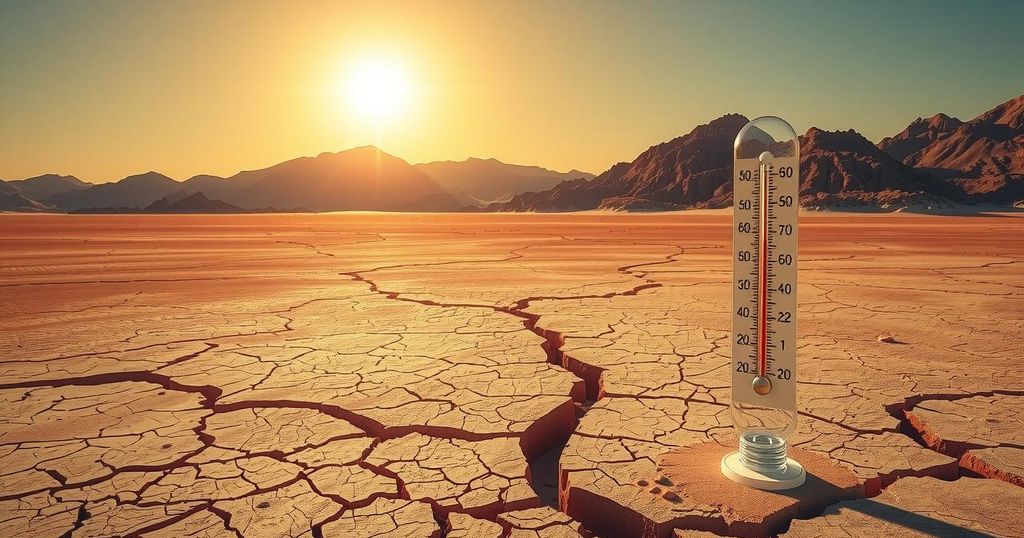January 2025 recorded the hottest global temperatures, standing 1.75°C above pre-industrial averages, raising alarms about accelerating climate change. Despite La Niña’s cooling effects, Europe also noted its second-hottest January. Experts emphasize urgent action against rising emissions as scientists identify significant human influence on these elevated temperatures.
January 2025 has been recorded as the hottest January globally, with temperatures reaching 1.75°C above the pre-industrial average. The Copernicus Climate Change Service notes that January’s average global temperature was 13.23°C, ranking it as the third hottest month on record. This unexpected heat has raised concerns regarding the acceleration of climate change, particularly as the La Niña phenomenon, typically associated with cooler temperatures, failed to mitigate the escalating warmth.
Throughout Europe, January 2025 marked its second-hottest month, with significant regional temperature variability. Despite some regions, such as Iceland and northern France, reporting cooler conditions, the overall European climate reflected persistent warming trends. The average sea surface temperature was also notably high, further emphasizing the ongoing impact of human-induced climate changes on various ecosystems.
Experts warn that the data indicating record temperatures could indicate a broader climate breakdown. Bill McGuire, a noted climate scientist, characterized the January figures as “astonishing and frankly terrifying,” emphasizing the urgency for reduced emissions amidst a backdrop of intensifying natural disasters. Meanwhile, Samantha Burgess remarked on the continuation of the unprecedented temperature trends despite the emergence of La Niña.
Professor Richard Allan highlighted that much of the global sea surface remains warm, attributed largely to human activity, despite natural climatic fluctuations. He suggested that these fluctuations – weekly alterations in weather patterns – may explain the unexpected global temperature spikes. The La Niña event transitioned to weakened conditions shortly before this record heat, underscoring the complexity of climate systems.
James Hansen, a pioneering climate change scientist, predicts that average global temperatures for 2025 are likely to be comparable to those of 2024, regardless of the cooling La Niña phase. He further underscores the gravity of the situation, asserting that the previous year was the hottest on record with a global temperature increase of 1.5°C above pre-industrial levels. This pattern reinforces the urgent need for concerted climate action among global leaders.
The article examines the alarming trends in global temperatures, particularly the record-setting heat of January 2025, which was significantly higher than pre-industrial averages. La Niña, typically a stabilizing factor for global temperatures, failed to prevent this increase, complicating perceptions of climate patterns. It underscores the urgency of addressing climate change in light of rising sea temperatures and extreme weather conditions, alongside a notable backtrack from emissions commitments by major global polluters.
In conclusion, January 2025’s record heat presents a harrowing indication of the ongoing climate crisis, challenging established scientific models regarding the impact of the La Niña phenomenon on global temperatures. Experts call for immediate action as rising emissions continue to contribute to alarming temperature increases, emphasizing the need for robust environmental policies to combat this escalating threat. The convergence of natural climatic phenomena and anthropogenic influences underscores the complexity of addressing climate change effectively.
Original Source: www.biznews.com






